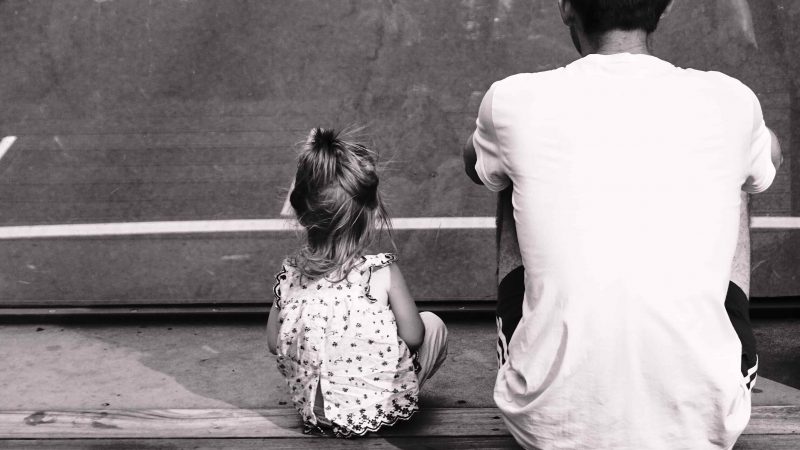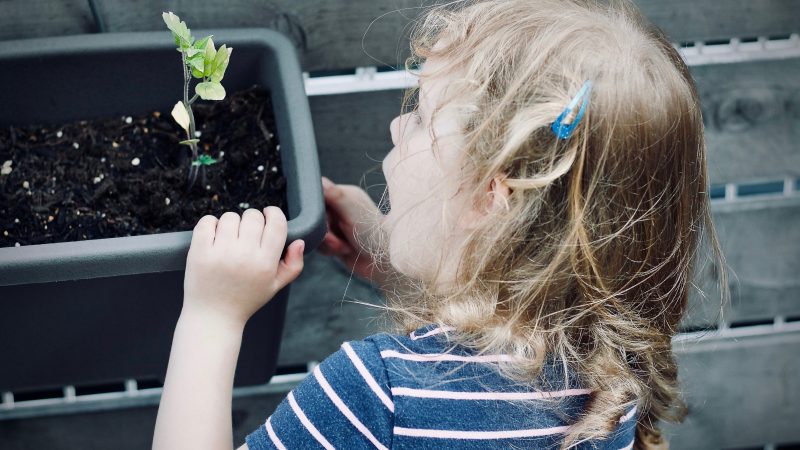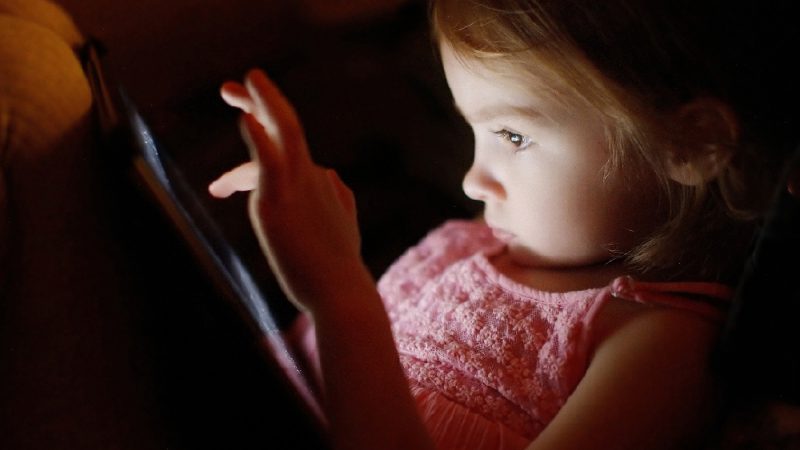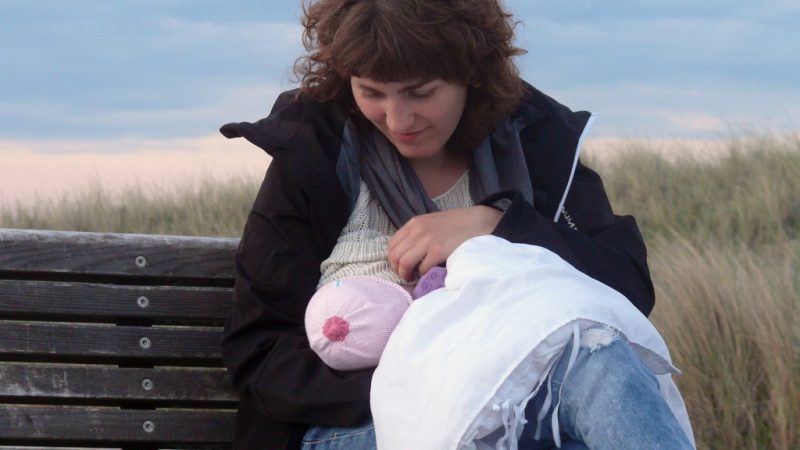
Father’s mental health in pregnancy and afterwards – a Q&A with Dr Zoe Darwin
We were joined by some of the partners of PSG members for a busy Q&A session about dads’ mental health this week with Dr Zoe Darwin.
Image: Federico Enni
Zoe: Hello everyone! I’m Zoe, a Lecturer at the University of Leeds and Deputy Chair of the Society for Reproductive and Infant Psychology (SRIP).
I’m in the Midwifery Education Team here at Leeds where I get to work with future midwives, discussing with them some of the psychology that’s relevant to reproduction. My main area of research is perinatal mental health (PMH) – that is, mental health during pregnancy and the first year following birth.
Q: Zoe – what led you to start looking at the mental health of fathers?
Zoe: My previous research had involved maternal mental health and I became increasingly aware of fathers’ experiences being rather overlooked. I’d also been involved with some research relating to Men’s Health more broadly so together, a team of us across the Universities of Leeds, York & Sheffield set up a collaboration in gender and perinatal mental health.
Q: Zoe, how was your research received by dads – were people pleased to talk to you or did it take a bit of persistence?
Zoe: We had a really good response. We linked in with an existing cohort study that was about pregnancy more generally so we didn’t know in advance what the uptake may be like.
I was also pleased that there were varied views – so we also heard from some fathers who were surprised the research was being done and did not feel it was that relevant. And having a range of views is important as that’d be the reality if changes were to be made in practice.
Q: This is really interesting research. What were your main findings?
Zoe: We found that although several of the men felt excluded by maternity services and had experienced significant stress in this period, they often questioned the legitimacy of their experiences and their entitlement to support.
They often linked this directly to not wanting to detract from the support available to women.
Q: From you research do you think men recognise perinatal mental health issues as a problem? Or do you think they feel stressed but that is expected?
Zoe: For some, it was their partners (the mothers) who helped them to recognise it. But yes, certainly – hindsight is often relevant when we think about ability to recognise our own psychological ill-health.
PSG D: Did many of the fathers that had recognised that they may have needed mental health support during this period realise this at the time or with hindsight?
Zoe: Good question! It’s so varied. I think it’s only relatively recent that we’re being to recognise that men can themselves be affected by, for example, postnatal depression. And certainly when that’s hit the media, the response has been very mixed…
Q: Has there been any research looking to the impact of poor paternal mental health and child development/attachment?
Zoe: Yes, there has. Mostly the research has concerned paternal depression – there’s not yet much known about associations with, for example, anxiety, PTSD following birth, etc.
The findings are similar for mothers and fathers – depression is associated with both attachment and with child development BUT there are also positive messages to be had here. What we see in the literature is that where one parent is unwell, the relationship with the other parent can ‘buffer’ (ie be protective against) some of the possible impacts.
Also, when we talk about associations and risks, it’s important to recognise that these are increases in chances and not guaranteed outcomes. Many parents who experience perinatal mental health problems will have children who are securely attached.
In terms of child development, the associations that we see do suggest some gender differences, eg behavioural outcomes show greater risks with paternal mental health vs maternal mental health.
PSG A: Why do you think this might be?
PSG E: Do you think that this could be more to do with societal roles and family structure, i.e. if father has poor mental health, maybe he could lose his job or be on long-term sick so the whole family is affected if money is reduced, living is more precarious, etc, affecting everyone’s stress levels more. Also, mothers may be supported more, and more quickly, so recovery is faster? Just speculating.
Q: I’m interested that many men reported that they wanted to be a “good dad” – what do you think they meant by that? Is this an impossible goal due to not being well defined?
Zoe: Interesting point. The language of aspiring to be a ‘good dad’ came up repeatedly. Sometimes it was in relation to their own experiences (either wanting to be like or wanting to be different to their own father). But what was so powerful, was that being a good dad was often used interchangeably with being a good partner.
PSG F: What strikes me when I read the ‘good dad/good partner’ concept is how much this relates to their own childhoods. Through the reading I’ve done in the postpartum phase (Parenting from the inside out by Dan Siegel), I now realise how much of us as adults is formed by our childhood experiences, and when it comes to becoming parents that’s even more relevant. So getting a prospective parent of either gender prepared for parenthood really ought to involve pre-awareness of this concept too.
Zoe: I think it’s fair to say – regardless of whether we’re discussing experiences of mothers or fathers – parents find it very difficult to self-assess their experiences/symptoms (whatever words we want to use) and there can be a fine line between stress and then that starting to impact on functioning (and the signs we associate with mental health ‘problems’ and psychological distress).
Q: Did the Fathers report symptoms beginning before the baby was born (ie during pregnancy) or were the questions exclusively about fatherhood beginning after the birth?
Zoe: Fathers in this study had completed questionnaires regarding their mental health both during pregnancy and in the postnatal period. we had a mix of fathers whose scores had been above-threshold (ie suggestive of depression/anxiety) during pregnancy, during the postnatal period, or both.
Q: How much awareness is there that men can experience mental health issues related to pregnancy and the postnatal period? We went to two antenatal groups (one general and one multiple birth specific) and it was touched on in the multiple birth one but not mentioned at all in the other one (even though women’s mental health was discussed a lot).
Zoe: There hasn’t been much awareness of fathers’ perinatal mental health – and even with maternal PMH it has often been dominated by postnatal depression whereas the last few years has seen excellent public health campaigns and social media campaigns about a wider range of PMH issues.
I don’t know if there are stats on the proportion of antenatal classes that include content on paternal PMH but my guess would be it’s a small minority. I wonder if the more specialised class was more mindful of some of the additional challenges facing these groups of parents – and perhaps, heightened importance of self-care, and communication between parents as part of a team. It’s good to hear this was covered. I wonder how it was received.
PSG H: I think we were all a bit surprised that it could affect men as we’d never heard of it. I think the leader said that PND is more common in both mothers and fathers of twins/triplets/more, plus the practical support from fathers is especially important. All the fathers I know who have done the night feeds have been twin parents!
Q: Have any fathers mentioned they would have found information about how they could support mothers after the birth useful? So that they might feel more useful/ knowledgeable?
Zoe: Yes, definitely – fathers often wanted more information on how to support their partner (we called the theme ‘protecting the partnership’ and this referred to both protecting their partner and the partnership/relationship). This included practical aspects but also emotional support, including how to have more helpful conversations about stress/mental health. Feeling helpless or powerless is such a key part of many parents’ experiences.
Q: Hi Zoe, are there any studies yet of the impact of shared parental leave on men? My husband had from 6-12 months with our son and the lack of societal structures to support him during this period was very clear. Luckily my breastfeeding support group welcomed him with open arms!
PSG A: This is so true! My friend found it really hard as a father to get involved in so many of the parent and toddler groups – despite being a really outgoing person, he found that other parents (all mothers) in the group didn’t really chat to him. He felt very isolated.
PSG J: It’s lonely being the first ones to do something new I think
Zoe: I’m not aware of UK studies that have yet captured this. Uptake of shared parental leave has been low and that’s partly because the decision is often linked to finance – because of the way it’s funded here. It’s a very different picture in, for example, Norway where leave is funded centrally. I can see that would be isolating, before it becomes (possibly?) more common.
PSG J: Hopefully as more companies extend their parental pay package to both parents this will change.
PSG H: This reminds me of a “mums and tots” group website that I looked at once. They were keen to point out that it wasn’t just for Mums – grandmothers, aunties, sisters, and “any other carers” were welcome too ?.
PSG K: My church changed the name of theirs to Baby and Toddler group for this reason.
Q: Hi Zoe, I can see why it’s likely that the possibility of postnatal depression in men would get a mixed response in the media.
‘Norms’ (to which ‘dad’s are acutely aware) from non-family social groups dumb down both the significance of the change for men and that the types of things they most valued were the things that did change, forever. I place most of this at the feet of the ‘sacrifice gap’. What my wife had to go through (even to get to Day zero of pregnancy), then through it and afterward is staggering in comparison to what I did. So the inner voice, compounded by outer voices do a good job of quashing the necessary need to talk it out. Thereby exacerbating the problem. Granted it was a while into being a new dad (highlighted/supported by my own wife’s journey) that I had enough language to even start to think it through. So thank you for creating awareness, as simply being aware it might be problem would have been a shortcut for me on this journey I’m still on.
Zoe: Thanks for your message. I agree, these changes are so significant – huge transitions and psychological adjustments (as well as often practical changes) for both parents – or indeed, through that period of pursuing becoming parents.
Q: I’m wondering why this should be a separate issue for men? Surely the very fact suicide is the largest killer of men under the age of 45 should make men’s mental health a ‘hot topic’ all round?
Zoe: Thanks for your comment. I wasn’t sure whether you meant a separate issue for perinatal mental health in men vs men’s mental health across the lifespan, or separate issue for men’s PMH vs women’s PMH. I’m keen for there to be greater awareness all round but think it’s not always helpful to segregate different parts of the lifespan, or men vs women.
Q: Hi Zoe, You mentioned self-care and communication between parents. Are there other protective factors?
PSG L: Looking forward to Zoe’s thoughts. A simple side thought in the meantime. Surely anything that seeks to connect dad to the new mum/baby is better than things that end up disconnecting him. Disconnection from your most important people (particularly when you already feel like a new outsider) is surely the start of a very bad journey.
What had the most impact on me from day zero was to be encouraged, praised, and given meaningful parts of the daily life puzzle to help with. ie I got to change nappies because that was a deeply caring thing I could do for my son when he was feeling vulnerable, rather than because it was a nasty thing mum didn’t want to do and it was a way for her to punish me for not doing the other 10hrs of things she’d been doing on her own. My wife had to be gracious about this or it might not have worked. I can be fairly certain that if the opposite had happened to me, in tone, word or action, I would have felt more disconnected.
Zoe: Yes – we even see this in the language we use, ie partners vs parents. and the importance of recognising that role.
Q: How much do you think lack of sleep plays a role – especially if father is also working full time?
PSG M: Mental health is generally affected by lack of sleep so I think it must?
Zoe: In my view, there is nowhere near enough research on the role of sleep deprivation and perinatal mental health – be it regarding mothers or fathers.
Q: Something my partner and I feel is often missed is the lack of parental experience and family support that many new parents have today. Particularly first time parents who have been career-focused and have literally no one to call on for support. It makes taking home new baby(ies) terrifying. The pressure is intense. Some form of class would be so helpful when HVs etc are now so stretched.
Zoe: Yes, services are so stretched and even postnatal midwifery support in the community is pretty limited – very true too for health visiting. It’s also relevant that people increasingly move away from their families (often linked to education, employment, availability of housing etc) and this means parents can be very isolated.
You also mention the shift from perhaps a more career-focused way of being and – this then links to a greater shift in identity, accompanied by all that comes with that.
PSG I: Yes, I think this is probably overlooked in all the hiatus around being pregnant. Especially if you’ve been on an IVF or assisted journey. Then you can also throw in a potentially complex multiple birth and you have all sorts of factors which could trigger depression.
Zoe: Yes, and although biological/physiological pathways are heavily implicated in severe mental illness in the perinatal period (eg puerperal psychosis) with anxiety and depression (which can range from mild-severe) we see a much more significant role played by psychosocial factors, ie individual differences and stressors/what people have going on around them. The context of a pregnancy is so important and can be totally different pregnancy to pregnancy within the same parents.
Q: Did you observe whether depression manifested differently in fathers than mothers? In my experience, it can show up as anger more than sadness which can make it harder to spot.
Zoe: Yes, there are gender differences about how mental health manifests. This has been shown in studies in the general population (outside perinatal mental health). Of course, any of us can show any range of behavioural symptoms/signs but in terms of more general patterns. There is some literature suggesting that we need to consider whether the questions that we ask to assess PMH symptoms should be different in men and women.
So – although it’s important that there are now the beginnings of national conversations as to whether fathers’ mental health should also be routinely assessed, we actually may not yet have enough information about effective, accessible, acceptable ways to do this.
There is also the issue of what we may feel more comfortable reporting, due to gendered differences etc.in our study, men spoke more about stress, tension, physical aspects (exhaustion, tension headaches) than eg crying. They did also talk about arguments and the use of eg sports for physical release of tension.
Q: Has any father ever mentioned intimacy or feeling left out because mothers need time and energy for babies?
Zoe: Some have talked about intimacy yes – both emotional and physical. although mainly emotional in the interviews we conducted. of interest, some were conducted by me and some by my (male) colleague, Paul. It would be good to do some work looking at the language used, in more detail.
PSG L: I felt that, and I’m sure if you asked most new dads (and they were honest) they would say the same.
Q: Was there any correlation between mental health problems following fatherhood and infidelity?
Zoe: This isn’t something that we looked at in our study. but yes, one of the established differences about gender and mental health is that eg depressed men may show what can seem quite reckless/destructive behaviour, including infidelity, substance use etc.
Did you enjoy this session? Why not read some more of other Q&As:
- Bigger Births and Breastfeeding with Prof Debra Bick
- TV and creativity with Dr Sarah Rose
- Infant Sleep with Prof Helen Ball
You can find links to all our sessions on our website: www.parentingsciencegang.org.uk/live-chats-with-the-experts/.


